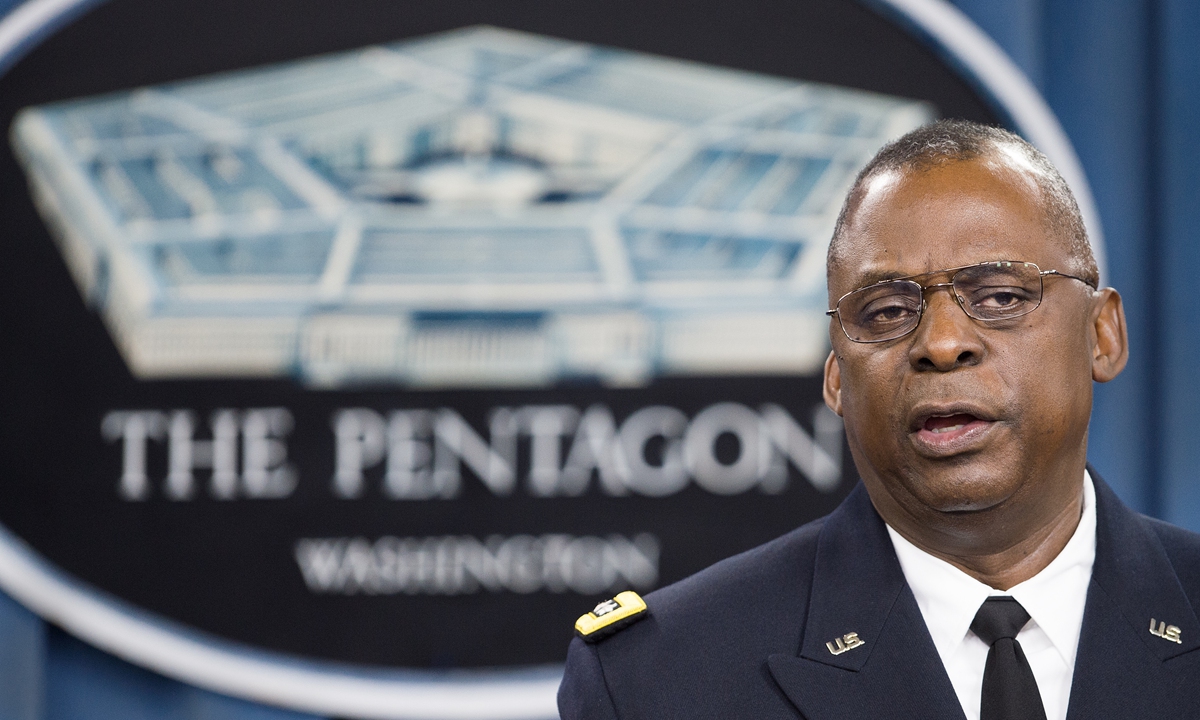
Lloyd Austin Photo: AFP
US Defense Secretary Lloyd Austin started his trip to Singapore, Vietnam and the Philippines on Friday to bolster defense ties with the three countries. "Secretary Austin's visit will demonstrate the importance the Biden-Harris administration places on Southeast Asia and on ASEAN as an essential part of the Indo-Pacific's architecture," Pentagon Press Secretary John Kirby said on July 19. "This trip will underscore the enduring US commitment to the region, and our interest in upholding the rules-based international order in the region and promoting ASEAN centrality," he noted.
It should be said that the timing of Austin's visit is rather delicate. Recently, many analysts believe that the Biden administration is not paying enough attention to Southeast Asia. As for Southeast Asian countries, they believe other than the desire for them to "help" Washington in the competition between the US and China, the Biden administration does not have an explicit policy agenda or clear course for the region. For the US, most Southeast Asian countries have not kept pace with Washington on hot spot issues such as the South China Sea and the Myanmar affairs.
In fact, it is easier said than done for Washington to strengthen its ties with Southeast Asia. It is difficult for Washington to leverage Southeast Asian countries in terms of economics, diplomacy, and the fight against COVID-19. The only thing Washington can offer is security and defense cooperation.
On the one hand, Washington has seized upon the concerns of some Southeast Asian countries about the rise of China and hyped up the "China threat" theory, thus tightening the relations with these countries.
On the other hand, the US strengthened bilateral relations by selling equipment and expertise to help these countries improve their military capabilities. As the US now has a relative shortage of capabilities and tools to influence Southeast Asia, security and defense cooperation have become "life-saving straws" for the US to exploit Southeast Asia. This is the real backdrop to Austin's visit to Southeast Asia
The focus of Austin's visit is naturally to repair relations with the Philippines. Certain media outlets are speculating that the two might make progress on the Visiting Forces Agreement. At present, Manila and Washington are engaged in working-level negotiations, but I think it may be difficult to have a definitive outcome during the tenure of the Duterte administration. Of course, it's anticipated that Austin will continue to make an issue of China's "expansion in the South China Sea" and stress its defense obligations to the Philippines. This will be done in order to win the Philippines' support on the Visiting Forces Agreement and other security issues.
Another topic of concern during Austin's visit is whether or not there will be a major breakthrough in military relations with Vietnam. In recent years, Washington has significantly increased diplomatic and defense exchanges with Hanoi. However, due to geopolitical environment, different political systems as well as the consideration of avoiding provoking Beijing, it is not easy for Hanoi to give substantial support to Washington in terms of security and defense.
It can also be predicted from current statements coming out of Vietnam that Austin's Hanoi meetings will be merely diplomatic and ceremonial, and will not yield substantial outcomes.
In Southeast Asia, Singapore is located in a very important geographical position and is also a strategic battlefield of multilateral diplomacy. In Singapore, Austin is anticipated to lay out US policy on the Indo-Pacific and Southeast Asia, offering some verbal commitments and reassurances to regional countries. But there is unlikely to be much improvement in the US-Singapore defense relationship. Singapore's Prime Minister Lee Hsien Loong has repeatedly called for restraints in the competition between China and the US, stressing that Singapore has no intention of taking sides.
Overall, Austin's potential achievements in his trip to Southeast Asia will be limited. But, of course, the high-profile nature of US' diplomacy will continue unabated.
The author is director of the South China Sea Strategic Situation Probing Initiative. opinion@globaltimes.com.cn




